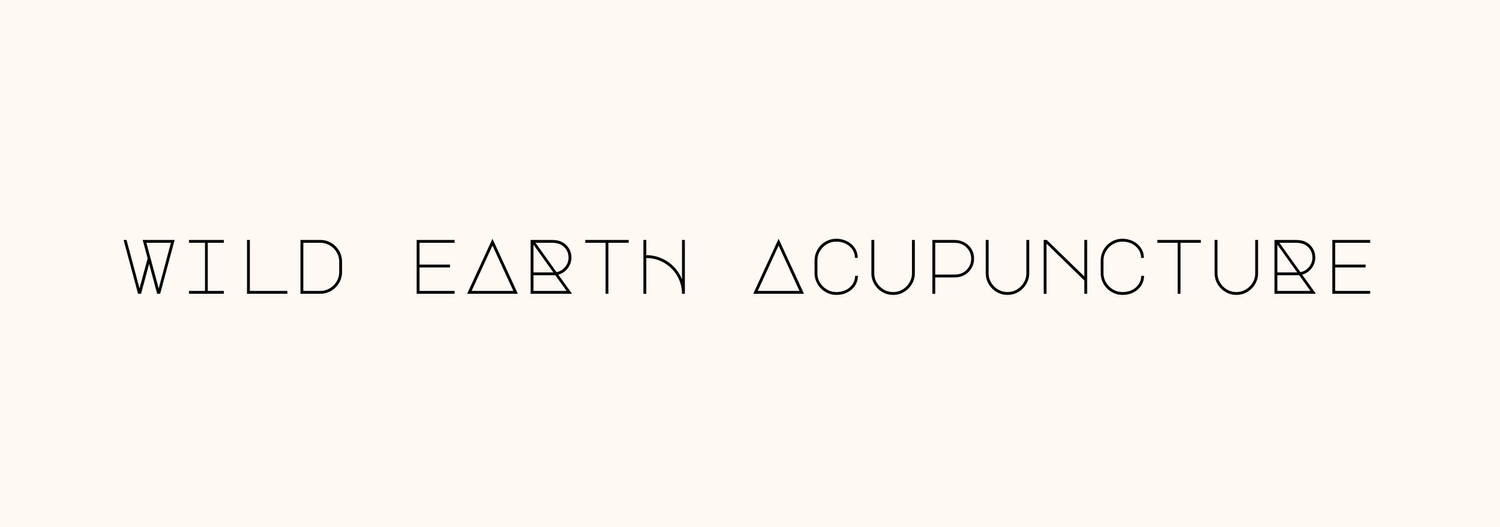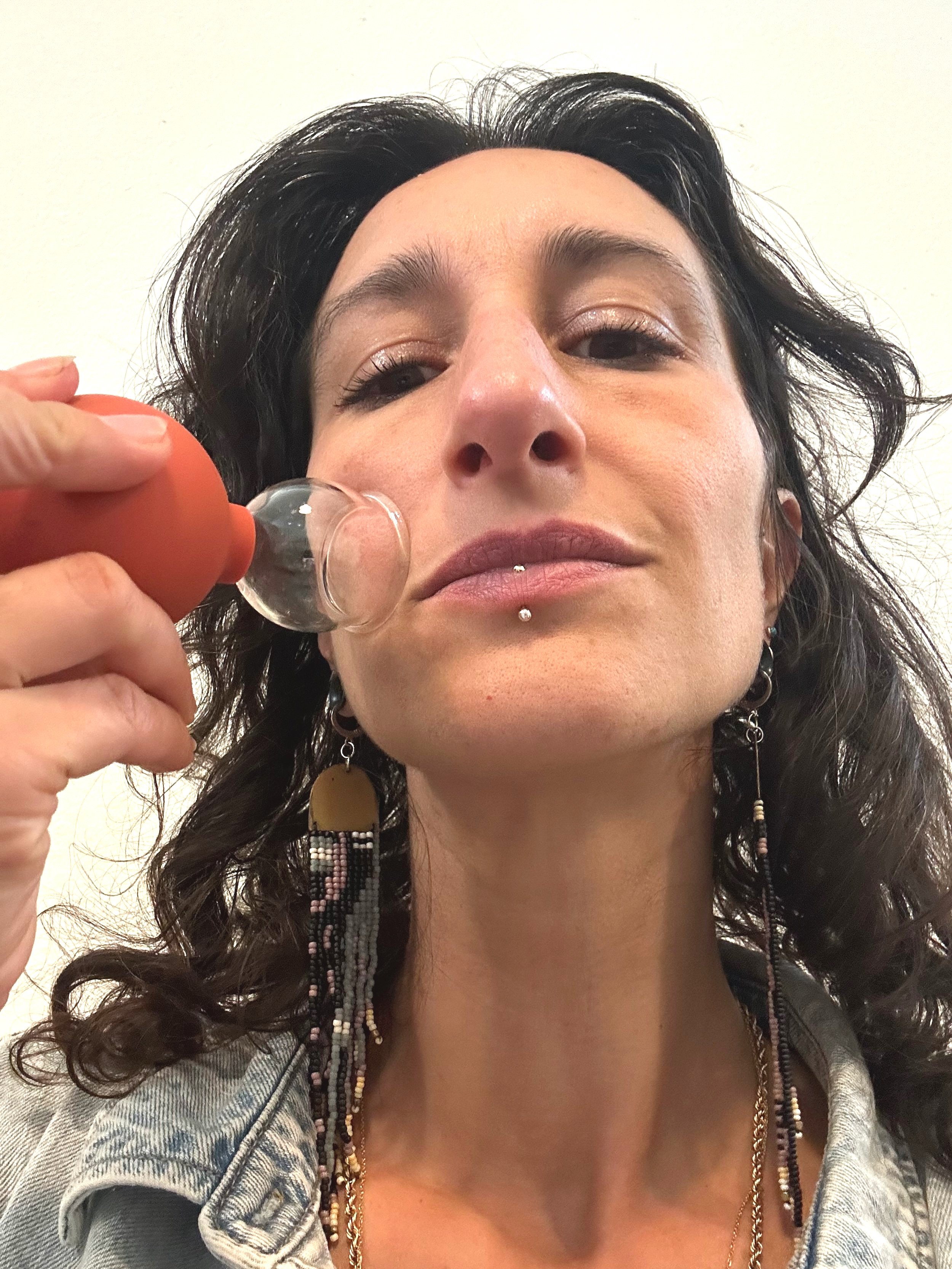What Traditional Chinese Medicine Says about Sleep
A good night's sleep can sometimes feel like an elusive luxury in our fast-paced world filled with stressors and distractions. While modern medicine offers a plethora of solutions ranging from medications to sleep hygiene techniques, Traditional Chinese medicine (TCM) offers an even deeper approach to understanding and addressing sleep disturbances.
Rooted in ancient philosophies and practices, TCM views sleep as a vital aspect of overall health, influenced by the balance of Qi within the body. In this article, we explore the theory underlying TCM to discover what it says about sleep and how its principles can guide us toward achieving restful nights and vibrant days.
I think it is important to recognize the bidirectional relationship between sleep and emotional regulation/ mental wellness. Sleep deprivation and chronic poor sleep patterns tend to heighten sensitivity to emotions and emotional regulation. Adequate sleep is crucial for cognitive function, emotional processing, and decision-making. During sleep, our brains consolidate memories and process emotional experiences from the day. This process is essential for maintaining emotional stability and resilience. Without enough sleep, our ability to regulate emotions becomes compromised, leading to heightened reactivity, irritability, and difficulty in coping with stressors.
Factors that Can Impact Sleep
Poor Dietary Habits (i.e. overeating, heavy meals, caffeine, and alcohol)
Excess Emotions (such as anger, anxiety, sorrow, and extreme happiness)
Exhaustion from activities (such as excessive exercise or overstimulation)
Overwork
Loss of Blood after Childbirth
Chronic illness
Aging
Long-term sleep deprivation disrupts the balance of neurotransmitters in the brain, particularly those involved in mood regulation, such as serotonin and dopamine. This imbalance can exacerbate symptoms of mood disorders like depression and anxiety. Conversely, sufficient sleep fosters the production of these neurotransmitters, promoting emotional well-being and resilience to stress. Chronic sleep deprivation has been linked to an increased risk of developing mental health disorders, including depression, anxiety, and bipolar disorder. Sleep disturbances are often early indicators of these conditions and can exacerbate their symptoms if left unaddressed. Conditions like anxiety and depression often disrupt sleep patterns, resulting in insomnia or excessive sleepiness. Addressing sleep problems is, therefore, a crucial component of comprehensive mental health treatment.
Recognizing the intricate relationship between sleep, emotional regulation, and mental wellness underscores the importance of prioritizing healthy sleep habits. By ensuring adequate and quality sleep, individuals can better regulate their emotions, enhance their cognitive function and energy levels, and safeguard their mental well-being.
The Essentials of Sleep in Traditional Chinese Medicine
Sleep is essential for energy levels and mental health, healing, growth, and quality of life. When sleep is adequate, the body has more ability to heal, and physiological functions are more regulated. As we age, the length of sleep, in general, decreases over our lifetime, which should be considered when analyzing sleep cycles.
The concept of Yin and Yang is central to TCM, representing the complementary forces that underlie all aspects of existence. Yin represents the passive, restorative, and nourishing aspects, while Yang embodies the active, dynamic, and stimulating qualities. The hours of darkness are associated with Yin, a time for rest, rejuvenation, and nourishment. As the sun sets and Yin energy ascends, the body prepares for sleep, signaling a shift towards internal repair and regeneration processes. Conversely, the hours of daylight correspond to Yang energy, promoting activity, alertness, and outward expression. Balance between Yin and Yang is essential for optimal health, including maintaining a healthy sleep-wake cycle. Yin energy is predominant at night, making conditions of sleep most attributed to Yin conditions.
The Role of Qi and the Organs in Sleep
Heart (Xin): Governs the Shen (spirit), and if the heart is disturbed (such as by stress, anxiety, or overthinking), it can lead to insomnia.
Liver (Gan): Controls the smooth flow of Qi. Liver Qi stagnation is often linked to irritability and difficulty falling asleep, especially with waking between 1-3 am (the liver time in TCM).
Spleen (Pi): Related to digestion and worry. Overthinking or poor diet can weaken the spleen, affecting sleep.
Kidneys (Shen): Associated with the essence (Jing) and energy reserves. Deficiency in kidney yin can lead to night sweats, restlessness, and insomnia.
The Hun- The Ethereal Aspect of our Soul
In TCM, sleep quality helps determine the state of the Mind (Shen) and the Ethereal Soul (Hun). It is said that the Mind should be anchored in the Heart-Blood, and the Ethereal Soul in the Liver-Blood. When there is not enough Blood or Yin to anchor the Mind or Ethereal Soul, the soul is said to “float,” causing sleep disturbances and insomnia. Disturbances in these aspects are often due to various factors of stress. In the most basic aspect, the quality of sleep in adults is due to the state of Blood and Yin, especially within the Heart and Liver organ systems.
The Chinese Medicine Scholar Giovanni Maciocia states, “The Hun is rooted in the Liver, particularly Liver- Yin (which includes Liver-Blood). If Liver-Yin is depleted, the Hun becomes rootless and deprived of its residence. This can result in insomnia and/or excessive dreaming. The Hun influences sleep and dreaming. If the Hun is well rooted in the Liver (Liver-Blood or Liver-Yin), sleep is normal, sound, and without too many dreams. If Liver-Yin or Liver-Blood is deficient, the Hun is deprived of its residence and wanders off at night, causing a restless sleep with many tiring dreams.”
Sleep Patterns in TCM
Insomnia and sleep disturbances can manifest in a variety of ways. When a person has difficulty falling asleep, this often is a condition of Blood deficiency of the Spleen or Liver. When a person has difficulty staying asleep or waking often in the night, this is more often a Yin deficiency condition, or excess of heat, fire, phlegm, or stress. From a TCM perspective, we first determine if the sleep issues are of excess or deficiency and then if the conditions are of the Heart or the Liver systems.
Excess conditions are characterized by restless sleep, with a feeling of heat, agitation, and excessive dreaming. Deficiency or empty conditions show up more as not being able to fall asleep or stay asleep without the symptoms described above. Heart-based patterns are more attributed to restlessness, and Liver patterns are more attributed to excessive dreaming. The Liver and Heart are the two Organ systems most attributed to sleep disturbances, but other Organs, such as the Spleen, Kidneys, and Gallbladder, also play a role outside of the Heart and Liver.
Types of Sleep Disorders in TCM
Insomnia (Bu Mei): Difficulty falling asleep or staying asleep, often related to Heart Yin deficiency or Liver Qi stagnation.
Restless Sleep: Can be due to excessive heat, dampness, or emotional disturbances, often impacting the liver or heart.
Frequent Waking: Often a sign of underlying deficiencies in the Yin organs, especially the heart and kidneys.
“When Yang is depleted and Yin is abundant, one’s eyes are closed. When Yin is depleted and Yang is predominant, one is awake.”
The Traditional Chinese Medicine Body Clock helps explain the flow of Qi within the body and the times in which each Organ System performs at its optimal level. Based on Traditional Chinese Medicine principles, our body's Organs and Meridian systems operate and rejuvenate at distinct intervals throughout the day. Each Organ possesses a specific 2-hour window when it is most dynamically active. While we sleep, our vital energy, known as Qi, inwardly tends to the body's complete restoration. It's recommended to retire before 11 pm as this marks the period from 11 pm to 1:00 am when the Qi of the Gallbladder is most active, governing the Yang-Qi system. During this time, the bloodstream accelerates to cleanse itself of the day's debris and initiate repair processes. Thus, retiring before 11 pm ensures ample Yang-qi, fostering overall health and mental well-being.
The time frame from 1:00 a.m. to 3:00 a.m. is dedicated to the Liver's functions and is crucial when considering sleep states. Ideally, during deep sleep, the Liver purifies and nourishes the blood during this phase. Prolonged late-night awakenings disrupt this detoxification process, hindering the Liver's ability to refresh the blood. Insufficiently nourished Qi and blood disrupt organ balance, leading to severe health issues and emotional instability.
The Role of Qi and the Organs
In TCM, the smooth flow of Qi throughout the body is vital for maintaining health and vitality. Disruptions or imbalances in Qi can manifest as various symptoms, including insomnia and other sleep disorders. TCM identifies several organs and meridians that play key roles in regulating sleep:
Heart- In TCM, the Heart governs the mind and houses the Shen or spirit. A calm and settled Shen is essential for falling asleep and staying asleep throughout the night. Excess heat or agitation in the Heart can lead to insomnia, vivid dreaming, or restless sleep.
Liver- The Liver is responsible for the smooth flow of Qi and blood throughout the body, as well as housing the Ethereal Soul, called the Hun. When the Liver Qi becomes stagnant due to stress, frustration, or unresolved emotions, it can lead to insomnia, especially difficulty falling asleep or waking up during the night.
Spleen- The Spleen is responsible for transforming food into Qi and Blood, providing the body with nourishment and energy. Weakness or deficiency in the Spleen can lead to fatigue, poor digestion, and disturbed sleep patterns.
Kidneys- The Kidneys store Essence, or Jing, which is considered the foundation of vitality in TCM. Adequate Jing reserves are essential for deep, restorative sleep and overall vitality. Weakness or depletion of Kidney Jing can manifest as chronic fatigue, nocturnal emissions, or waking up frequently during the night.
By assessing the balance and function of these organs and meridians, patterns of disharmony can be identified as contributing to sleep disturbances, and develop individualized treatment plans to restore balance and promote restful sleep.
Common TCM Patterns Causing Insomnia; Underlying Pattern Differentiations
Numerous underlying pattern differentiations may be attributed to poor sleep, and it is essential to determine if patterns are excess or deficiency. A practitioner can help you find formulas specific to your constitution and current pattern. Some such patterns may be as follows;
Liver Blood Deficiency
Liver Yin Deficiency
Liver Fire Blazing
Heat Fire Blazing
Heart Blood Deficiency
Heart Yin Deficiency
Plehgm Heat Harassing the Shen
Heart Blood Deficiency with Spleen Blood deficiency
Kidney Yin, with or without Empty Heat
Gallbladder Deficiency
Heart and Kidney Yin Deficiency with Empty Heat
TCM Therapies for Sleep Support
TCM offers a variety of therapeutic modalities to support healthy sleep patterns and address underlying imbalances:
1. Acupuncture- Acupuncture involves the insertion of thin needles into specific points on the body to promote the smooth flow of Qi and blood. By targeting acupuncture points related to sleep regulation, such as the Shenmen (Spirit Gate) and Anmian (Peaceful Sleep), acupuncture can help induce relaxation, reduce stress, and improve sleep quality.
2. Acupressure- This technique is great to use at home to help assist the body in finding a healthy and natural rhythm of sleep. Points such as An Mian, Shen Men, and Yong Quan are great for self-massage and acupressure.
3. Herbal Medicine- Chinese herbal medicine utilizes a vast array of medicinal herbs to nourish Yin, clear heat, regulate Qi, and tonify the organs involved in sleep regulation. Herbal formulas may be prescribed based on the individual's constitution and specific patterns of disharmony identified during TCM diagnosis. Herbs such as Long Chi (Dens Draconis), Suan Zao Ren (SemenZiziphi spinosae), Bai Shao (Radix Paeoniae albae), and Mu Li (Concha Ostrea) are all important herbs to help promote better sleep cycles.
4. Dietary Therapy- TCM emphasizes the importance of dietary choices in maintaining health and balance. Foods with cooling properties, such as leafy greens, cucumbers, and mung beans, may help clear excess heat and promote relaxation for better sleep. Avoiding stimulating foods and drinks, such as caffeine, spicy foods, and alcohol, especially in the evening, can also support healthy sleep.
5. Mind-Body Practices- Practices such as Qigong, Tai Chi, and meditation cultivate mindfulness, reduce stress, and promote the free flow of Qi throughout the body. Incorporating these practices into daily routines can help calm the mind, soothe the spirit, and improve overall sleep quality. Foot soaks before bed are also a nice addition to your daily self-care. Taking a few moments before bed and soaking your feet in warmer water with a dash of lavender oil can help calm the mind and relax the body to prepare for a long restful evening.
6. Herbal Medicine- Herbs such as chrysanthemum, and Jujube are great herbal allies to help promote better sleep and can be taken in formulas or as teas.
In Traditional Chinese medicine, sleep is not merely a biological necessity but a reflection of the body's internal harmony and balance of energies. By understanding the interplay of Yin and Yang, the smooth flow of Qi, and the functions of key Organs, TCM offers a comprehensive framework for addressing sleep disturbances and promoting restful sleep naturally.
Through acupuncture, herbal medicine, dietary therapy, and mind-body practices, individuals can utilize the wisdom of TCM to cultivate deeper, more rejuvenating sleep and awaken each day feeling refreshed, revitalized, and ready to embrace life's challenges with clarity and vitality.
“When a person lies down and cannot sleep, [it means] the Yin organs are injured [so that] the Jing has no residence and is not quiet and the person cannot sleep". - Chapter 46. Su Wen
The Significance of Dreams in Traditional Chinese Medicine
The ancient texts of the Su Wen and Ling Shu describe associations with excessive dreaming and pattern differentiations.
Excess of Yin: Floods and fear, Attacks and destruction, Crossing the sea and being scared
Excess of Yang: Fire
Excess of Yin and Yang both: Killing and destruction
Excess condition in general: Giving away things, being angry, crying, weeping, worry, fear, crying, flying
Deficiency conditions: Receiving things, fires, volcanic eruptions (if the dream takes place in summertime), lying under a tree being unable to get up (if the dream takes place in springtime. mountains, fire, and smoke, very fragrant mushrooms, forests on mountains, white objects or bloody killings, battles and war (dream taking place in the autumn), flying and seeing strange objects made of gold or iron, being hungry, building a house (dream taking place in late summer), singing and feeling very heavy, abysses in mountains and marshes, plunging into water and being scared (dream taking place in wintertime), immersed in water.
Liver related: Being angry, very fragrant mushrooms, lying under a tree being unable to get up (if the dream takes place in springtime, forests on mountains
Lung-related: Crying, weeping, White objects or bloody killings, Battles and war (dream taking place in the autumn), worry, fear, crying, flying, flying and seeing strange objects made of gold or iron
Heart-related: Fires, volcanic eruptions (if the dream takes place in summertime), laughing, mountains, fire, and smoke
Spleen-related: Being hungry, building a house (dream taking place in late summer), singing and feeling very heavy, abysses in mountains and marshes
Kidney-related: Swimming after a shipwreck, plunging into water and being scared (dream taking place in wintertime), spine being detached from the body, being immersed in water
Stomach-related: Having a large meal
Small Intestine related: Large cities
Large Intestine related: Open fields
Gall-Bladder related: Fights, trials, suicide
Bladder related: Voyages
Emptiness in the Lower Burner: Flying
Fullness in the Lower Burner: Falling
RESOURCES
Gruber, R., Cassoff, J. The Interplay Between Sleep and Emotion Regulation: Conceptual Framework Empirical Evidence and Future Directions. Curr Psychiatry Rep 16, 500 (2014).
Boon, M. E., van Hooff, M. L. M., Vink, J. M., & Geurts, S. A. E. (2023). The effect of fragmented sleep on emotion regulation ability and usage. Cognition and Emotion, 37(6), 1132–1143.
Liu C, Qu J, Chen L, Liu R. Analysis of Sleep Quality and TCM Constitution Characteristics in 258 Outpatients: A Cross-Sectional Study Based on Outpatient Cases. Appl Bionics Biomech. 2022 Aug 10;2022:2952531. doi: 10.1155/2022/2952531. Retraction in: Appl Bionics Biomech. 2023 Dec 20;2023:9819602.









































Learn about Kidney Yang Deficiency in Traditional Chinese Medicine, including signs, symptoms, food choices, and lifestyle tips to restore balance and vitality. Discover a warming recipe to support Kidney Yang health.